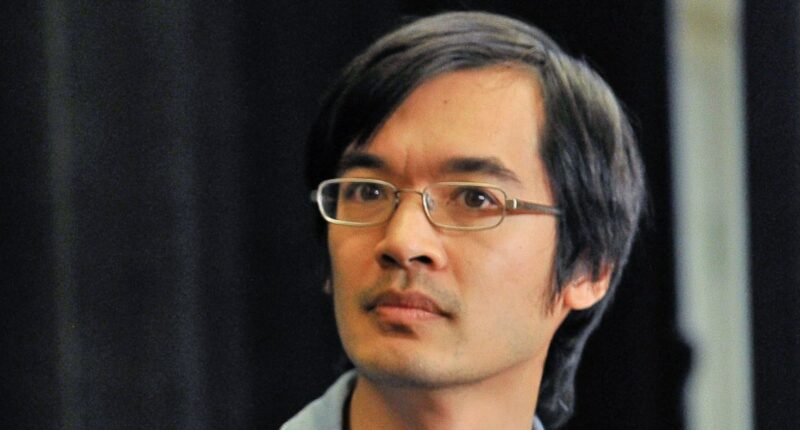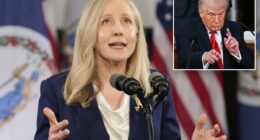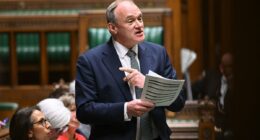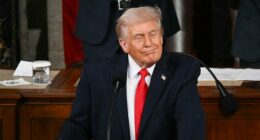Share this @internewscast.com
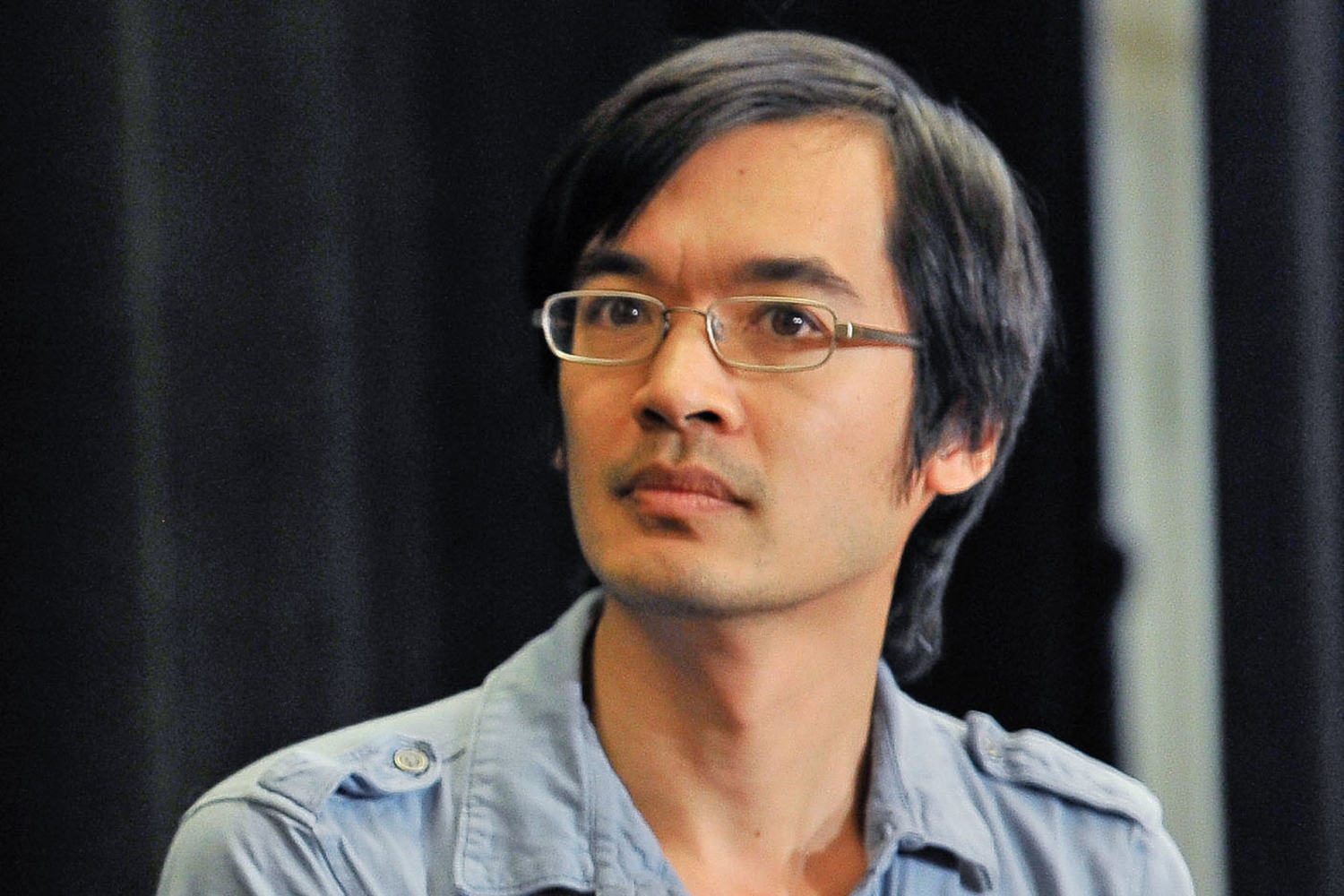
Terence Tao, one of the world’s foremost mathematicians, who is often called the “Mozart of Math,” would rather not talk politics.
“I do scientific research,” Tao said. “I vote, I sign a petition, but I don’t consider myself an activist.”
However, following the suspension of $584 million in federal grants at UCLA in July, where he became a faculty member at just 20 years old, Tao feels compelled to voice his concerns against what he perceives as “indiscriminate” funding cuts to science. These reductions, he warns, could drive scientists, including himself, away from the U.S. if the trend persists.
“I find this administration, particularly radical in altering the scientific landscape in ways that even Trump’s first term did not,” Tao remarked. “This is abnormal, and many fail to grasp the extent of the ongoing damage.”
Tao, a leading mathematician and academic, stands out as a public critic of the administration’s policies, describing them as an “existential threat” to his field and the broader arena of academic science. Currently, he prioritizes public advocacy over his research.
“As the world’s biggest funder of scientific research, the U.S. administration is committed to upholding America’s leadership in innovation. However, federal research funding is not an inherent right,” stated White House spokesman Kush Desai. “The administration is accountable for ensuring that taxpayer-funded research reflects the American public’s priorities.”
The Trump administration took aim at UCLA by halting federal grants across the university, citing issues such as racial discrimination and a failure to foster a bias-free and antisemitism-free research environment.
Tao moved to the U.S. three decades ago at the age of 16, already recognized as a math prodigy. He made his mark at UCLA and earned the prestigious 2016 Fields Medal, akin to a Nobel Prize in mathematics. His accolades also include a MacArthur Fellowship and a Breakthrough Prize, among others.
The National Science Foundation, as part of a broader federal action aimed at UCLA, suspended two of Tao’s grants, including one that directly supported Tao’s work at UCLA and another for the university’s Institute for Pure and Applied Mathematics (IPAM), where Tao oversees special projects.
On Aug. 12, U.S. District Judge Rita F. Lin ordered the university’s NSF grants be restored, enforcing a previous preliminary injunction in a legal battle that is ongoing. The ruling only applies to NSF grants at UCLA, including Tao’s. Federal grants from other agencies, like the National Institutes of Health and the Energy Department, remain suspended.
“The U.S. National Science Foundation has reinstated the suspended awards to the University of California — Los Angeles,” an NSF spokesperson said in a statement, declining further comment about Tao’s remarks.
Long term, funding for IPAM — which was founded in 2000 and built to foster collaborations between mathematicians, industry and engineers — remains uncertain. The grant expires next year and is awaiting renewal. The institute is almost entirely funded by NSF, and the Trump administration has proposed a 57% budget cut to NSF, according to its request for fiscal year 2026.
Tao’s NSF-funded research centers on a technical branch of mathematics that is focused on determining if and when patterns are occurring in long sequences of numbers. It is basic research without a direct application in mind, but Tao said his findings could have implications for cryptographic protocols for security.
Research out of IPAM, however, has more obvious public benefits. Two decades ago, Tao collaborated with scientists focused on signal processing problems in medical imaging.
“One of the algorithms we developed at IPAM is used routinely in modern MRI machines to speed up MRI scans by a factor of 10 in some cases,” Tao said.
The Trump administration has used cuts or suspensions to grant funding as leverage as it seeks reform at university campuses. Its approach has been multipronged: The administration first attempted to slash funding for science by reducing federal reimbursements for indirect costs like equipment, maintenance and office staff.
Then, it targeted specific types of grants, such as those involving diversity, equity and inclusion or gender identity, among other topics.
It also targeted specific institutions, like Harvard University, Columbia University and more recently UCLA, over allegations of racism and antisemitism.
Lawsuits have followed many of these funding actions, and the subsequent back-and-forth legal battles have left some grants vacillating between canceled and reinstated.
Tao said the recent funding disruption to his project forced him to defer some of his own salary to continue paying his graduate students. He’s spent the past several weeks working not on math, but in emergency meetings with university administrators, fundraising meetings with donors and writing opinion pieces to oppose the cuts.
“This is time that I would normally have down for my own research, but this takes priority,” Tao said.
He’s increasingly concerned about the bigger picture: He thinks the administration’s actions are increasingly pushing young scientists to leave the U.S., and if trends continue, Tao said he could not rule out leaving, too.
From his perch at UCLA, Tao said he’s noticed graduate students and postdoctoral students are increasingly choosing to pursue opportunities outside of the U.S. as uncertainty around funding grows.
“There have been past periods of history where other countries with a great scientific tradition have experienced great turmoil or war and many of them fled to the United States as a safe haven,” Tao said. “It’s kind of ironic that there may now be a reverse process where other countries may start picking up talent which is currently in the U.S.”
One year ago, Tao said he would have never considered leaving UCLA or the United States, but he’s received a handful of recruiting inquiries and he’s no longer confident he’ll stay in the United States, if trends continue.
“I have roots here. I raised my family here, so it would take a fair amount to uproot me, but these days, it’s really hard to make predictions now,” Tao said. “I was not thinking about moving at all. This wasn’t even on the radar, and now, for better or for worse, every possibility has to be considered.”
